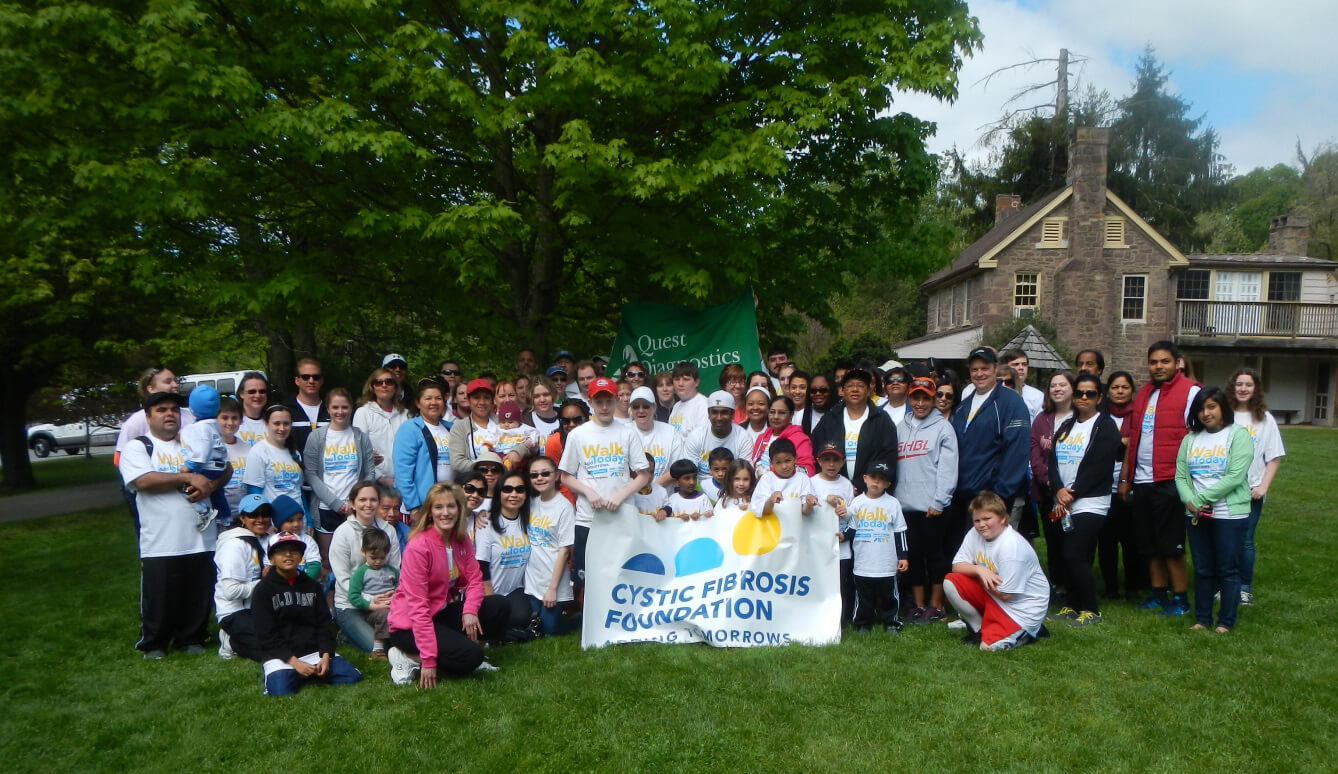May is cystic fibrosis (CF) awareness month. Did you know that CF is the most common and severe inherited disease in Caucasians? While CF is seen most frequently in Caucasians, it can occur in any ethnic group. There are currently over 30,000 people affected with CF in the United States. CF is caused by changes in the
CFTR (cystic fibrosis transmembrane regulator) gene and is inherited in a recessive pattern. This means in order to show symptoms, an individual has to inherit 2 copies of a mutated
CFTR gene, 1 from each of their parents. A carrier of CF only has 1 mutated
CFTR gene and does not show symptoms. Approximately 1 in 28 people of Northern European ancestry are CF carriers. Even if there is no family history of CF, this does not preclude the risk of being a carrier.

Lisa Pike-Buchanan, of Quest Diagnostics in Chantilly, VA, led a team of 100 co-workers and family members at a local CF Great Strides event (supporting the CF Foundation) at Ellanor C Lawrence Park in May, 2013.People who have CF can have a variety of symptoms with different severities. They typically have difficulty breathing and are subject to frequent lung infections due to heavy mucus buildup in their lungs. Another common symptom is a reduced ability to absorb nutrients from food. CF can also affect the reproductive system, and some males may have difficulty having children. There is currently no cure for CF, but great advances have been made through continued research. Not that long ago, people with CF only lived into their teens or 20s. Since diagnosis and treatments have improved over time, affected individuals are now living longer.Early diagnosis is important so that treatments can be given to help with breathing and improve nutrient absorption. Currently in the U.S., through state newborn screening programs, all babies are tested at birth for CF. While there are multiple ways to test for CF, genetic testing is now widely available for diagnosis, as well as for carrier screening. Using genetic testing for diagnosis has become even more important because there are now medications that have been approved by the U.S. Food and Drug Administration for people with specific CF mutations. These drugs target certain defective proteins to restore their normal function in affected tissues. This helps alleviate some of the breathing and malabsorption problems and helps extend the lives of affected individuals.Not everyone with CF will benefit from taking these drugs because there are well over 1,000 CF mutations, and these medications are only able to target a small number of them. Nonetheless, they have made a significant impact on the lives of those who can use them and have provided hope for the future of others with this disease. Research requires funding and many CF advocacy groups hold fundraising events across the country each year. Many supporters will continue these efforts until CF stands for “cure found”!
Your Privacy Choices





